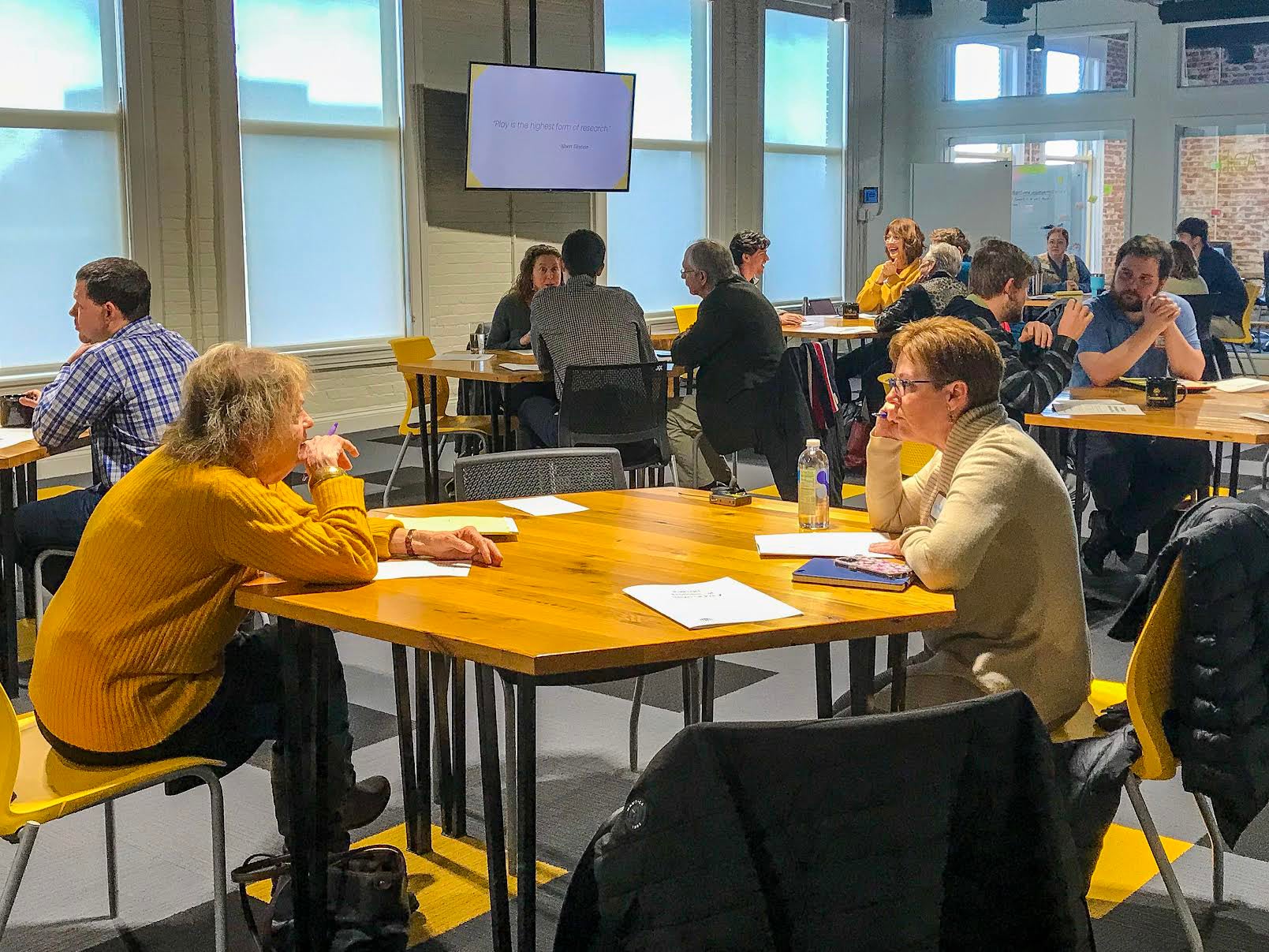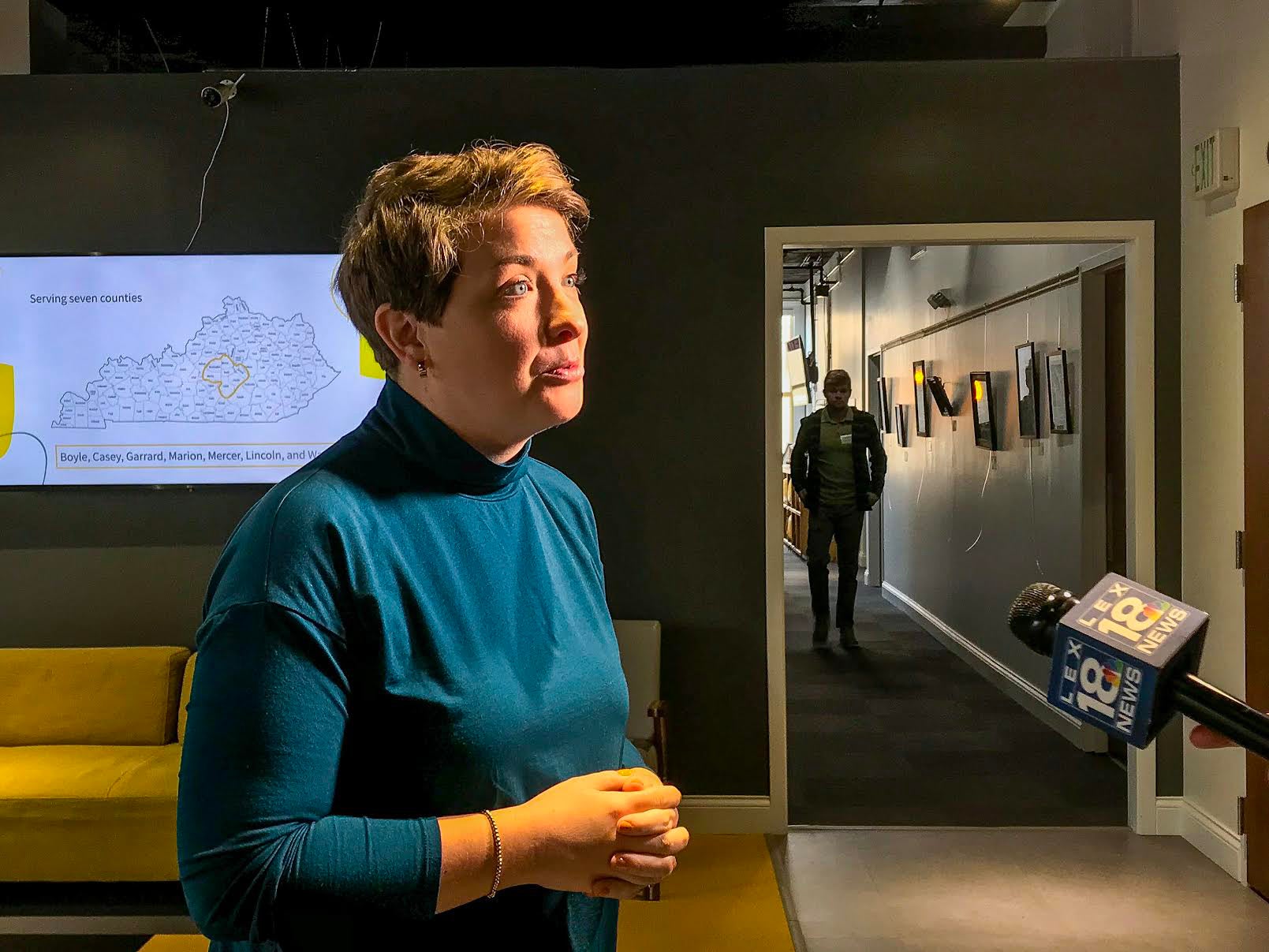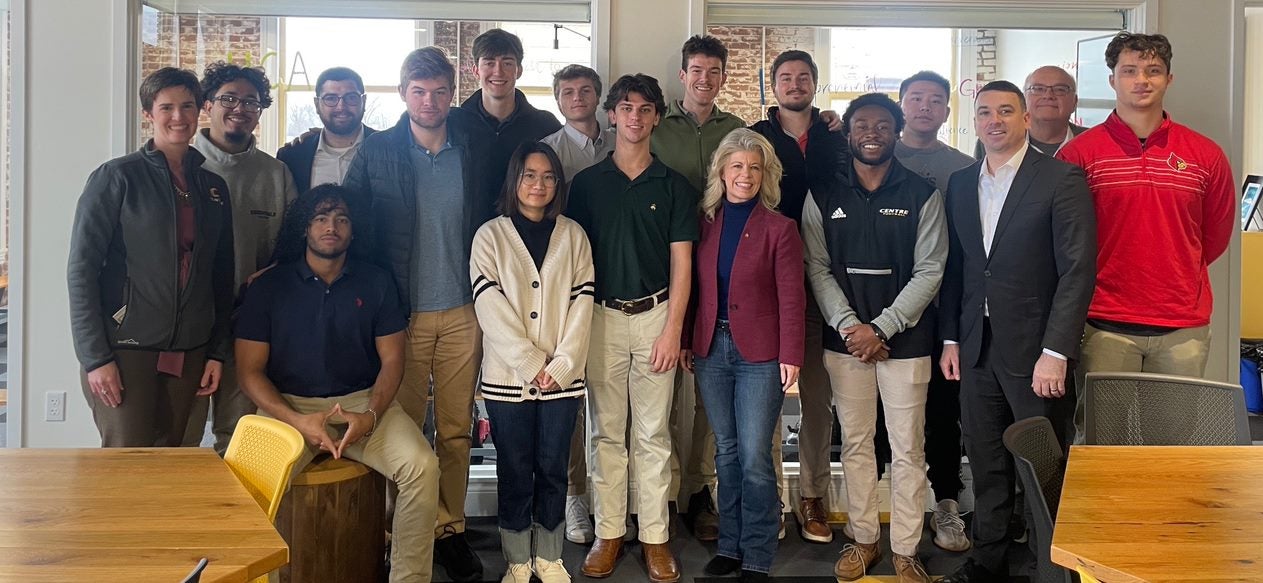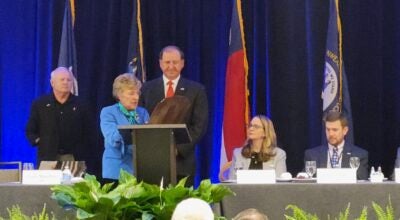Centre students present research on benefits of universal pre-k
Published 12:43 pm Monday, January 30, 2023
Centre College students researched local child care issues for a CentreTerm class, Economics of Early Childhood Education. They presented their findings on Wednesday at CentreWorks.
The class, taught by Professor of Economics and Business Patten Mahler, came out of Gov. Andy Beshear’s commitment to push for universal preschool in Kentucky. In December, Beshear announced a $36 million federal grant to fund statewide pre-k initiatives.
Students spent time talking with people in the community who are involved with the issue, people who run local child care centers, parents with young kids, and local and state leaders. They visited early childhood education centers and traveled to Frankfort to meet with the Kentucky Governor’s Office of Early Childhood.
The class found that universal access to early childhood education would have immediate workforce benefits.
“The lack of accessible, affordable and quality child care accounts for $573 million in lost earnings for business productivity and tax revenue. About 40% of working-age mothers in 2021 report that they couldn’t work because of child care responsibilities,” according to the study.
Between 20-40% of mothers would work or pursue better work if given more access to child care. When more people are employed, the state tax revenue increases, and there’s more economic activity and growth.
“A big push of this is we want people to go back to work, we want workforce participation to increase,” Mahler said. “But just expanding the current model of public pre-k of having care four days a week for half-days is not sufficient.”
Mahler explained that most jobs don’t allow people to work four days a week just in the mornings, and that preschool should be a full work day to accommodate working parents.
Students showed videos of community members talking about the issue. One of them is Mary Beth Murray, a local mother. She said it was very difficult to find child care centers with open spots in this area. Many of them have long waiting lists.
Students explained that the biggest return on child care investment would be seen 20 years from now when kids go to college or join the workforce.
Studies have shown early childhood education to increase individual future earnings by at least 3% and up to 20%. Quality early education leads to better behavior, which leads to lower crime rates later on, data shows.
The three main types of organizations supplying early education are Head Start programs, which operate on federal funds for low income families; public preschool; and Childcares, which receive much of their funding from paying families and some from federal grants.
Fewer than 10% of children are enrolled in Head Start or preschool. A total of 42.2% are not enrolled anywhere, and 48.6% are in childcare.
For child care to be considered affordable, the cost must not exceed 7% of family income. Kentucky’s child care exceeds that threshold for median income families, and takes up over 40% of the income of minimum wage families.
While child care is expensive, child care centers make very little money. Some in the area have even closed because of this. Child care workers and preschool teachers make $1-2 less per hour than a McDonald’s employee in Kentucky, according to the study.
Solutions
The study concluded that a mixed delivery model of universal pre-k would work best for Kentucky. This would involve blending funding from multiple sources.
The report explains that an example of mixed delivery is “a publicly employed preschool teacher working in a childcare center that serves kids who are eligible for childcare subsidies.”
Kentucky can continue using a mix of preschools, Head Start, private child care centers, faith-based centers, and home-based centers. This allows working parents to choose the type of program that best fits their needs.
To increase the quality of different centers so they can utilize multiple streams of funding, they would likely need additional funding upfront to ramp up staff qualifications and other standards.
State Rep. Josie Raymond of Louisville was one of several officials and advocates at the event. Also in attendance was Amy Neal, executive director of the Kentucky Governor’s Office of Early Childhood; Terry Tolan, consultant for the Center for Nonprofit Excellence in Louisville; and Sarah Vanover, policy and research director for Kentucky Youth Advocates.
Raymond, who advocates for child care, encouraged Kentuckians to push the issue in Frankfort.
“I think it’s something we’re going to keep pursuing in the coming years,” Raymond said. “It’s going to take a little bit of time to figure out the finances and the model that’s going to work, but we’ve got momentum.”
Jess Miller, a junior economics and finance and international studies double major, said he took the class for his major and was surprised at what he learned.
“I had no idea that the cost of quality care was so high, parents were suffering and the community as well,” Miller said. “The ability to interact with these kids myself has just brought the problem to life.”
He said it was interesting to talk with people whose kids went through child care 20 years ago, and people whose kids are in child care now, and hearing that the difficulties have not changed.
“Hopefully [people in attendance] gained the urge to take action as soon as possible, because it is a huge problem,” Miller said.
Mahler said she hopes that lawmakers look at the issue in a nuanced way, that they can have a conversation about unintended consequences, and how universal child care can be done in a way that works best for all parties.










